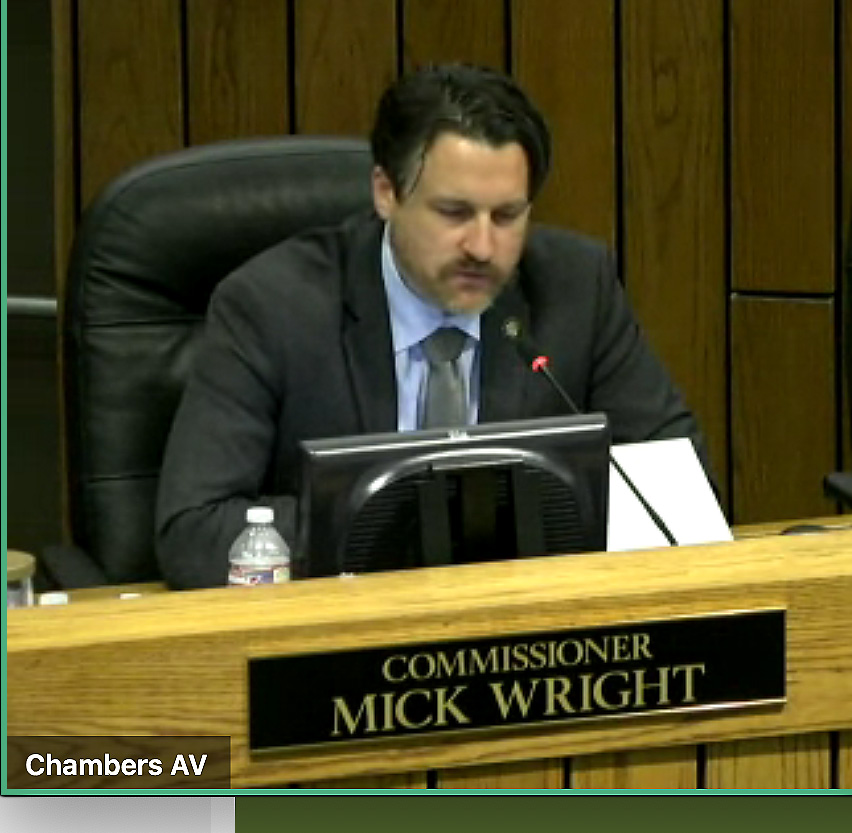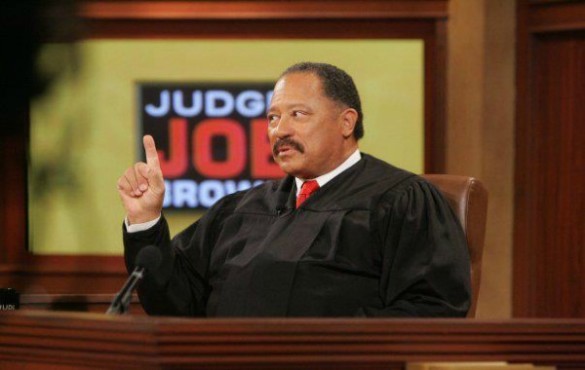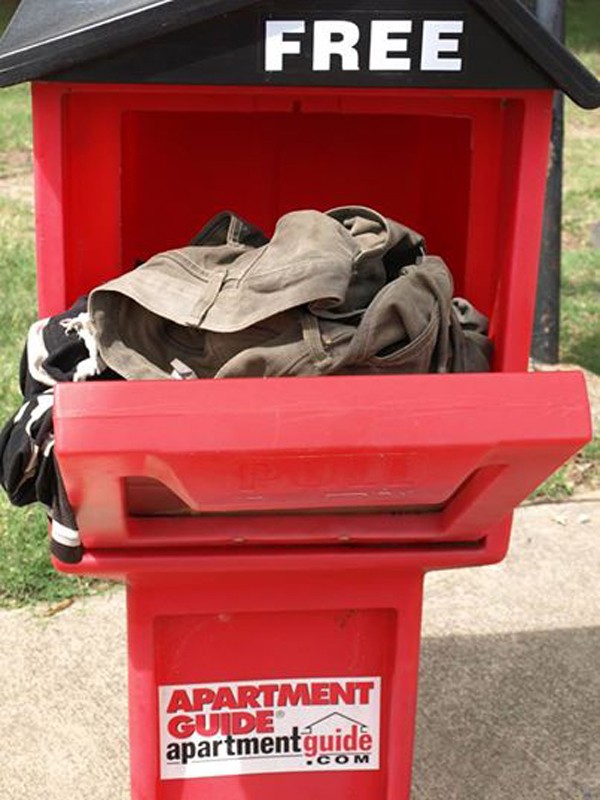If, for partisans of the Shelby County Democratic Party, the period just before the current month got under way was the calm before the storm, what has happened since has been the storm.
Believe it or not, there are several Democratic candidates on the county general election ballot — including Deidre Malone, the party’s candidate for Shelby county mayor, who is running an intelligent, well-conceived campaign involving several ad hoc support groups; and Cheyenne Johnson, the incumbent Shelby County assessor, who is widely regarded as having served effectively, and who proved her appeal to a general public with an impressive reelection win just two years ago.
But two other Democrats on the ballot have monopolized all the attention of late, effectively drawing it away from Malone, Johnson, and other Democratic nominees. Worse, most of the publicity attracted by those candidates — Henri Brooks, candidate for Juvenile Court clerk, and Joe Brown, candidate for district attorney general — has been negative.
To be sure, both Brooks and Brown have seen a closing of the ranks behind them of core supporters — backers of Brooks, especially, have been active, filling the County Commission’s interim meeting room on Monday, making it S.R.O. for yet another showdown on her residential status — but general elections in Shelby County are not won solely on the basis of partisan support.
And both Brooks and Brown seem to have burned more bridges than they have built to swing voters, despite what had initially seemed good prospects for expanding their bases.
Brooks, a term-limited county commissioner, began the election year on a wave of relative acclaim, having almost single-handedly forced the U.S. Department of Justice to investigate conditions at Juvenile Court and subsequently to mandate reforms in the court’s procedure. Really, all Brooks had to do to sustain good election chances was to make nice in the way of most candidates, doing at least minimal outreach beyond her African-American inner-city constituency.
Instead, she managed to alienate considerable numbers of white and Hispanic voters in the course of a stormy commission debate about minority contracting on county construction projects (one in which her rhetoric undercut the tenable logic of her case); incurred a misdemeanor assault charge in a needless wrangle over a parking-lot space; and, finally, was discovered not to be inhabiting her listed residence, leading to serious efforts by fellow commissioners to declare her ineligible to serve and to vacate her seat.
Brooks has so far come out ahead in a series of skirmishes on the residential matter. She won a declaratory judgment last week from Chancellor Kenny Armstrong invalidating County Attorney Marcy Ingram’s finding that Brooks’ seat should be vacated. Armstrong ruled that only the commission could make such a finding.
And when the commission took up the matter on Monday, in the aforementioned jam-packed meeting room, no agreement on going forward could be reached by Brooks’ 12 colleagues. After a lengthy and contentious session, the commission concurred on a resolution to meet again on a still undefined date later this month, but there was a general consensus, at least privately, that Brooks would be able to run out the clock — on the basis of her attorneys’ appeals, if by no other means — and will be able to finish her term of office.
But that tactical victory, and the ongoing fuss about Brooks, could turn out to be Pyrrhic for her election chances.
As for Judge Joe Brown (as the former Criminal Court judge was billed during the 15 years of his nationally syndicated TV arbitration show), the aura of de facto ticket booster that his celebrity had initially gained him had already sagged due to an extended period of inactivity during May and June.
Brown had let it be known that, as of July 1st, things would be different. And he was right about that, if wildly wrong about which direction the difference would take. Speaking to a group of supporters last week, he responded grumpily to a TV station’s prodding him about the deleterious effect of an ongoing divorce on his surprisingly scanty campaign finances.
A supporter filmed and posted online Brown’s angry, rambling suggestion that the media should turn its attention instead to the matter of what he called the “down low” sexuality of his opponent, incumbent District Attorney General Amy Weirich, whose lifestyle is regarded as that of a conventional wife and mother.
Brown’s unsubstantiated remarks generated a predictable and virtually universal outrage, but he declined to disavow them, calling himself an “entertainer” running for office.
Doubtful as it is that swing voters will be amused, they were “summoned” by the newly visible Brown to a meet-and-greet this Wednesday night at the Central Train Station on Main.
• Interestingly enough, County Commissioner Justin Ford was scheduled to be the host for another meet-and-greet on Wednesday — this one for aunt Ophelia Ford‘s reelection campaign in state Senate District 29.
It will be remembered that Commissioner Ford won his primary race in the new Commission District 9 in something of a stealth manner against two highly active opponents, former school board member Patrice Robinson and Memphis Education Association President Keith Williams. During most of the spring primary campaign, there was talk in both of those two campaigns that the race was between the two of them, that Ford had been redistricted away from his main source of support in the South Memphis environs of N. J. Ford Funeral Home, and so forth.
When votes were counted on the evening of May 6th, however, it was Justin Ford who came out ahead, having put on something of a late rush and, perhaps as importantly, riding the residual cachet that belongs to the Ford name.
Reports of a decline in the Ford political dynasty have been somewhat exaggerated. Take a look: There is a Ford on the County Commission, another (Edmund Ford) on the City Council, and, however battered by bad publicity, adverse revelations about her attendance (more of which is likely to come) and doubts about her competence, Ophelia has so far managed to remain in the state Senate.
There is no doubt that City Councilman Lee Harris, is running a smart, vigorous, and apparently well-supported and financed campaign to unseat Senator Ford, and he has the further advantage of the free media that comes from being in the public eye as a highly active member of the council.
But there is a rule of thumb about incumbents having the edge in three-way races, and the fact is that the Democratic primary race in state Senate District 29 is a three-way — a four-way, really, inasmuch as Ricky Dixon and Herman Sawyer are on the ballot along with Ford and Harris.
Either Dixon or Sawyer could siphon anti-incumbent votes away from challenger Harris, but Dixon is a threat in his own right. Brother of former state Senator Roscoe Dixon, also a Tennessee Waltz figure, candidate Dixon has run before, most recently as the Democratic nominee in 2010 for Circuit Court clerk, netting 44 percent of the votes in that race.
What happens in the remaining month or so before election day on August 7th will be crucial. If Harris can translate his endorsements and campaign appearances into visible evidence of support during early voting, which begins on Friday, July 18th, he could be on his way to a new political venue.
If so, Harris will have accomplished something not yet done by anybody — defeating a Ford for reelection. Even with someone so visibly tarnished as Ophelia Ford, that might not be so easy.


 Jackson Baker
Jackson Baker 


 Jackson Baker
Jackson Baker 
 Greg Cravens
Greg Cravens  Greg Cravens
Greg Cravens 
